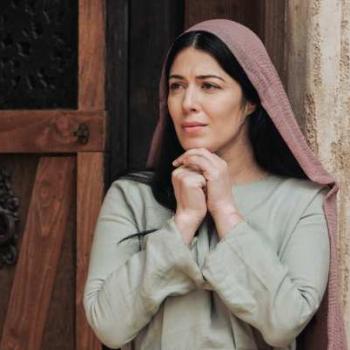"Do not turn to idols or make cast images for yourselves: I am the LORD your God." - Leviticus 19:4, NRSV
On Thursday, July 12, an independent investigative counsel consisting of former FBI Director Louis Freeh and his associates released its findings on what Penn State knew about and how it handled Jerry Sandusky's rape of young boys on the Penn State campus. Some had hoped that those in power—especially the winningest college football coach of all time, the revered Joe Paterno—might be exonerated. Instead, Mr. Freeh's conclusions were scathing:
The most saddening finding by the Special Investigative Counsel is the total and consistent disregard by the most senior leaders at Penn State for the safety and welfare of Sandusky's child victims....
Four of the most powerful people at The Pennsylvania State University—President Graham B. Spanier, Senior Vice President of Finance and Business, Gary C. Schultz, Athletic Director Timothy M. Curley and Head Football Coach Joseph V. Paterno—failed to protect against a child sexual predator harming children for over a decade. These men concealed Sandusky's activities from the Board of Trustees, the University community and authorities. They exhibited a striking lack of empathy for Sandusky's victims by failing to inquire as to their safety and well-being. (14)
Media outcry over these findings has been swift and vocal. This past Sunday on "Meet The Press," Bob Costas argued that the football program at Penn State should receive the NCAA's "death penalty"—that as a result of this cover-up by Mr. Paterno and others, the much-loved football Nittany Lion football team should be shut down. On Monday, the morning hosts of CNN's "Starting Point" debated whether Joe Paterno's statue at Penn State ought to be removed, with most agreeing it was a necessary next step. The assembled women of "The View" opined that Joe Paterno's statue at Penn State in fact ought to be roughly torn down as though it were a statue of Saddam Hussein.
But sports radio actually came much closer to the spiritual truth of this issue than most of the mainstream media. On ESPN Radio, Corey Giger, a guest on Colin Cowherd's "The Herd" show, spoke of the "cult-like worship" of Joe Paterno, the saintly "Joepa," and called him a false god, which indeed, he and Penn State football were (and for many, still are).
The Hebrew Testament proscriptions against false gods often strike us these days as ridiculous and archaic. We don't worship statues or graven images, do we?
But the fact of the matter—as suggested by what has led to the controversy over the Paterno statue—is that we often chase after false gods, try to find our meaning, our community, in places where the true God is not.
And always—always—we are disappointed, or we disappoint.
Mr. Paterno seemed to be worthy of adulation, even of "reverence," a word that The Chronicle of Higher Education said characterized the widespread feeling for Joepa and Penn State football.
After all, wasn't this the same man who, in an a much-admired commencement speech, told Penn State's graduating class in 1973 that
To be in a locker room before a big game and to gather a team and to look at grown men with tears in their eyes, huddling close to each...reaching out to be part of each other...to look into strong faces which say "If we can only do it today"...to be with aggressive, ambitious people who have lost themselves in something bigger than they are--this is what living is all about.
We have shared four years together, years we will never forget, and we hope this short journey has made us all a little better.
Wasn't this the same man named Sportsman of the Year by "Sports Illustrated" in 1986, of whom writer Rick Reilly said
From whom else but Paterno did we learn that you can have 20-20,000 vision and still see more clearly than almost everybody else, that you can look like Bartleby but coach like Bryant, that you can have your kids hit the holes like 'Bama's and the books like Brown's, that the words ''college'' and ''football'' don't have to be mutually exclusive.





